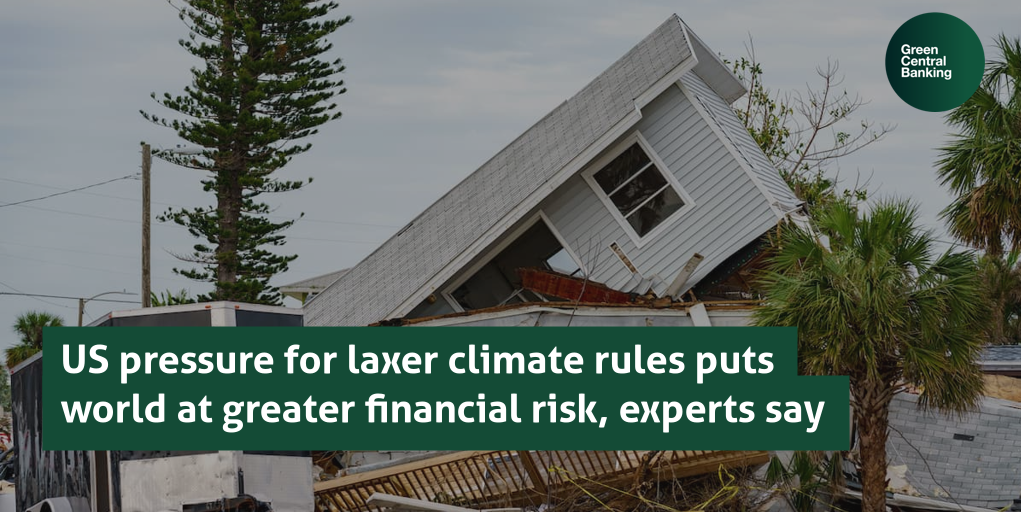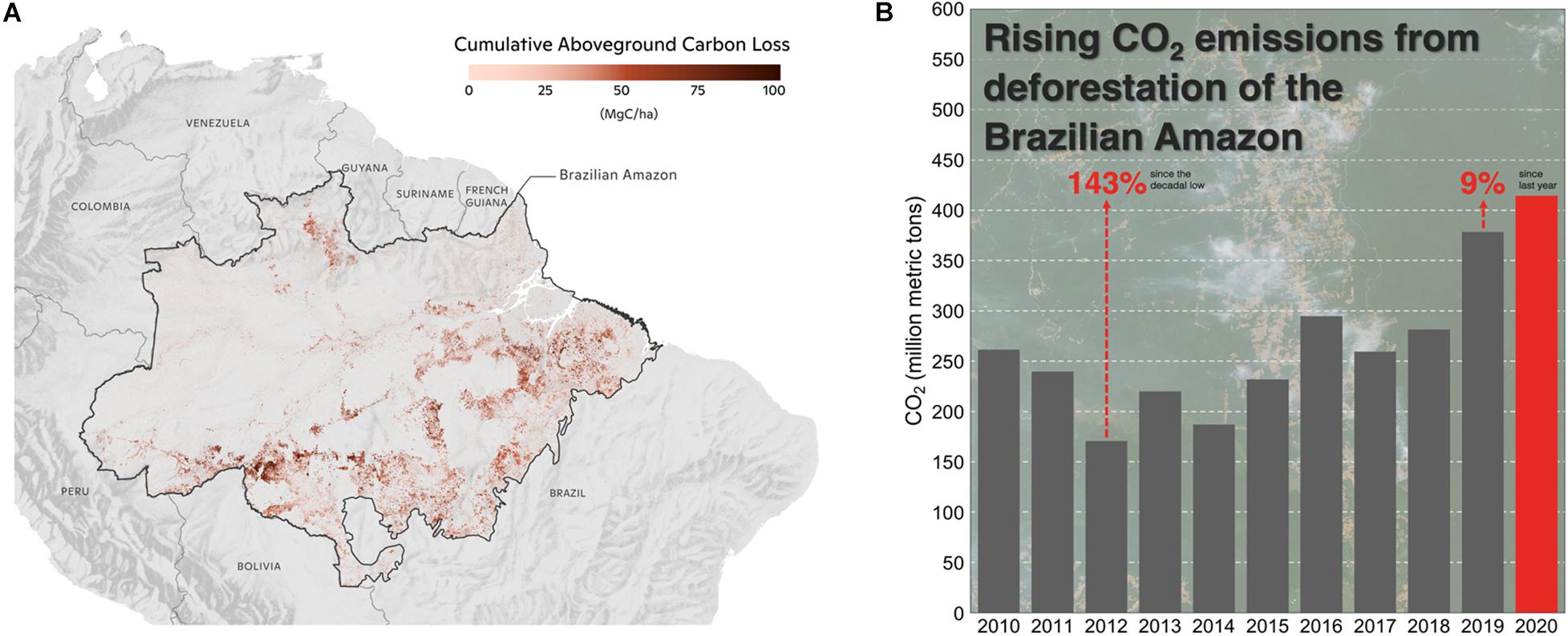
US Influence on Global Climate Negotiations and Financial Risks

The United States has historically held significant sway in global climate negotiations, a trend that continued into the second Trump administration. However, recent developments indicate a decline in US influence regarding climate issues, as its push for an anti-climate agenda faces increasing rejection by the international community. This shift has implications for global efforts to address climate-related financial risks, which are critical to achieving the Sustainable Development Goals (SDGs), particularly SDG 13 (Climate Action) and SDG 17 (Partnerships for the Goals).
Global Response to US Climate Policy Retreat
Despite the US retreat, other nations are advancing climate negotiations. Nevertheless, the US withdrawal risks undermining global financial stability and the management of climate risks. Key developments include:
- US pressure at the Basel Committee on Banking Supervision to halt climate change mitigation efforts was largely rejected, signaling resistance to US recalcitrance.
- Criticism from central bankers and finance ministries in France, Canada, South Africa, and the Netherlands, culminating in a pause during a Financial Stability Board meeting due to disagreements over US Treasury comments minimizing climate risk.
These events highlight the tension between US policy and global commitments to sustainable finance, which are essential for SDG 8 (Decent Work and Economic Growth) and SDG 12 (Responsible Consumption and Production).
Financial and Environmental Risks from US Policy Shifts
Experts warn that US backtracking on green policies could have severe financial consequences worldwide. The European Insurance and Occupational Pensions Authority (EIOPA) identified increased Environmental, Social, and Governance (ESG) risks linked to US withdrawal from key agreements such as the Paris Agreement and the Network for Greening the Financial System (NGFS). Key points include:
- Withdrawal from global health and climate agreements may lead to more extreme pandemics and natural disasters, undermining SDG 3 (Good Health and Well-being) and SDG 13 (Climate Action).
- Increased insurance losses from natural disasters, projected at US$145 billion in 2025, threaten economic stability and resilience (SDG 1: No Poverty, SDG 11: Sustainable Cities and Communities).
- Studies indicate that unchecked emissions could slow global economic growth by up to 30%, impacting SDG 8 (Decent Work and Economic Growth).
Declining US Influence in Climate Financial Regulation
Although the US remains assertive, its influence in international climate financial regulation is diminishing. The Basel Committee’s recent climate-related financial disclosure framework remains voluntary, reflecting US pressure against mandatory guidelines. Observations include:
- US influence is no longer as dominant as in previous years, according to experts.
- Climate change has become a partisan issue in the US, complicating consistent policy implementation aligned with scientific evidence (SDG 13).
- The Federal Reserve’s alignment with political shifts rather than climate science undermines independent action on climate risks.
Despite federal resistance, several US states and large banks are advancing climate disclosure and risk management initiatives, contributing to SDG 9 (Industry, Innovation, and Infrastructure) and SDG 11 (Sustainable Cities and Communities). However, the lack of nationwide coordination and federal support limits effectiveness.
State-Level Initiatives and Challenges
- California’s climate disclosure rule impacts many large companies, with other states considering similar legislation.
- Some large US banks are preparing for climate risks despite federal opposition.
- Federal lawsuits against state climate rules create additional regulatory uncertainty.
Increased Climate Change Risks and Global Implications
The US withdrawal from international climate agreements increases both physical and transition risks globally. Key concerns include:
- Reduced regulatory oversight signals to financial institutions that climate risks are less important, undermining global efforts to meet SDG 13.
- Fragmented international cooperation hampers the ability to slow or reverse physical climate risks, affecting SDG 17 (Partnerships for the Goals).
- Political and regulatory uncertainty in the US elevates transition risks, complicating other regions’ climate ambitions, including the EU.
The EU’s proposed omnibus regulation, which may weaken climate reporting rules, reflects pressures to remain competitive with the US but risks compromising broader sustainability objectives (SDG 12 and SDG 13).
Recommendations for Global Climate Cooperation
- Strengthen international coalitions involving China, Japan, India, Brazil, and the EU to compensate for US withdrawal and promote SDG 17.
- Encourage US leadership in renewable energy to capitalize on economic opportunities and support SDG 7 (Affordable and Clean Energy).
- Promote consistent, science-based climate risk assessments across all levels of government and financial institutions to mitigate the “climate-related doom loop.”
Conclusion
The US’s retreat from climate commitments poses significant challenges to global sustainable development efforts. It risks increasing financial instability, undermining climate action, and slowing progress toward multiple SDGs, including SDG 1, 3, 7, 8, 11, 12, 13, and 17. Coordinated international action and robust regulatory frameworks remain critical to managing climate-related financial risks and advancing sustainable development worldwide.
This page was last updated June 24, 2025
1. Sustainable Development Goals (SDGs) Addressed or Connected
- SDG 13: Climate Action
- The article focuses heavily on climate change risks, international climate agreements, and regulatory measures to combat climate-related financial risks.
- SDG 9: Industry, Innovation and Infrastructure
- Discussions on financial regulations, banking supervision, and climate-related financial disclosures relate to building resilient infrastructure and fostering innovation in financial systems.
- SDG 17: Partnerships for the Goals
- The article highlights international cooperation and the impact of US withdrawal from global climate agreements, emphasizing the importance of global partnerships.
- SDG 3: Good Health and Well-being
- The withdrawal of the US from the World Health Organization is mentioned as increasing risks of extreme pandemics, linking to health and well-being.
- SDG 8: Decent Work and Economic Growth
- Economic impacts of climate change, such as slowing global growth and financial risks, connect to sustaining economic growth and productive employment.
2. Specific Targets Under Those SDGs Identified
- SDG 13: Climate Action
- Target 13.1: Strengthen resilience and adaptive capacity to climate-related hazards and natural disasters.
- Target 13.2: Integrate climate change measures into national policies, strategies, and planning.
- Target 13.3: Improve education, awareness-raising and human and institutional capacity on climate change mitigation, adaptation, impact reduction, and early warning.
- SDG 9: Industry, Innovation and Infrastructure
- Target 9.3: Increase the access of small-scale industries and other enterprises to financial services, including affordable credit and their integration into value chains and markets.
- Target 9.5: Enhance scientific research, upgrade the technological capabilities of industrial sectors.
- SDG 17: Partnerships for the Goals
- Target 17.14: Enhance policy coherence for sustainable development.
- Target 17.17: Encourage and promote effective public, public-private and civil society partnerships.
- SDG 3: Good Health and Well-being
- Target 3.d: Strengthen the capacity of all countries for early warning, risk reduction and management of national and global health risks.
- SDG 8: Decent Work and Economic Growth
- Target 8.4: Improve progressively, through 2030, global resource efficiency in consumption and production.
- Target 8.5: Achieve full and productive employment and decent work for all women and men.
3. Indicators Mentioned or Implied to Measure Progress
- Climate-related Financial Disclosures
- The Basel Committee’s framework on climate-related financial disclosures (voluntary guidelines) implies indicators related to transparency and reporting of climate risks by financial institutions.
- Insurance Losses from Natural Disasters
- Insurance losses quantified as US$145bn in 2025 serve as an indicator of economic impact from climate-related disasters.
- Economic Growth Impact
- Study findings that global economic growth could slow by 30% if emissions are not curbed act as an indicator of climate change’s economic consequences.
- Participation in International Agreements
- US withdrawal from the Paris Agreement and the Network for Greening the Financial System (NGFS) can be tracked as indicators of international cooperation and policy alignment.
- Regulatory Measures and Policies
- Implementation of state-level climate disclosure rules (e.g., California’s climate disclosure rule) and omnibus regulations in the EU serve as indicators of policy progress and regulatory oversight.
- Financial Sector Commitments
- Bank commitments to net-zero financing and their actual financing of emissions indicate progress towards transition risk management.
4. Table: SDGs, Targets and Indicators
| SDGs | Targets | Indicators |
|---|---|---|
| SDG 13: Climate Action |
|
|
| SDG 9: Industry, Innovation and Infrastructure |
|
|
| SDG 17: Partnerships for the Goals |
|
|
| SDG 3: Good Health and Well-being |
|
|
| SDG 8: Decent Work and Economic Growth |
|
|
Source: greencentralbanking.com







